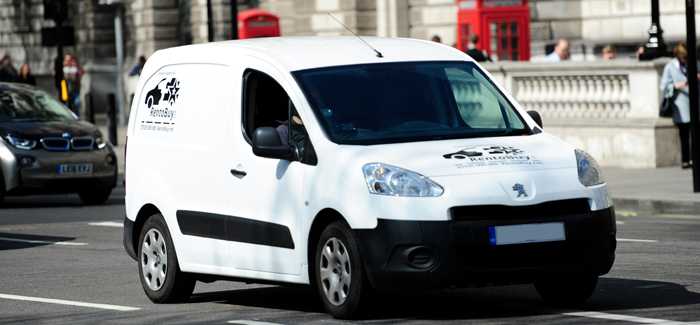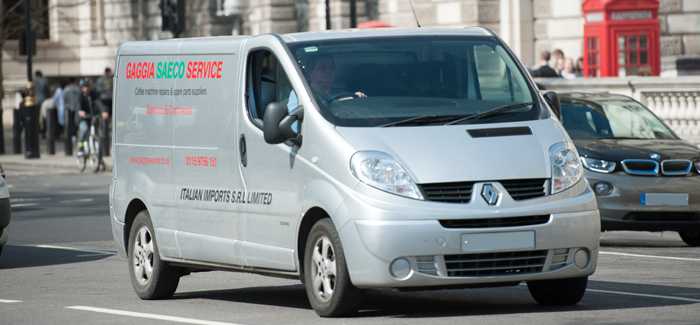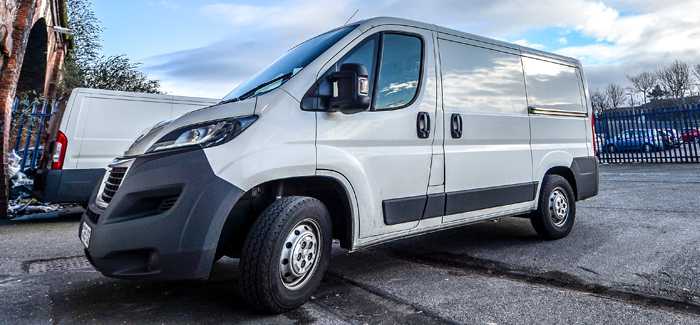
Van running costs calculator
There are a wide number of factors to take into account when you're trying to estimate van running costs, such as purchase price, van insurance, fuel, VED (also known as road tax), maintenance and servicing.
Getting these figures right can be the key to choosing the right van, on the right terms, which makes financial sense for your situation.
To a certain degree, the type of van you choose and what you use it for will dictate some of the running costs. Larger vans with bigger engines will use more fuel; the more miles you drive, the more maintenance work your van will usually require and the more often you will need new tyres.
What you use your van for will affect your insurance costs; they will probably be higher as a courier than they might be if you're a tradesperson. There are dozens of factors that can have an impact on the running costs of your van.
For many van drivers, especially those who are self-employed sole traders, buying a brand new van outright as a cash buyer isn't often an option, but there are a number of other ways in which they can get on the road.
A common way for people to compare ways of running a van is to add up all costs over four years and then divide by four, to give an annual cost that takes into account one-off expenses, like purchase price, and splits this over a longer period so you can see past the immediate outlay and evaluate what is best for your requirements.
See how much you can save
Compare van insurance quotes today!
Second-hand van running costs
For many people starting a small business, a used van is more than adequate for their needs and obviously involves a much lower initial outlay than buying a brand new van would.
Running a second-hand van makes financial sense for many people and businesses, but there are lots of things to consider; which include:
-
The van purchase price (this could be the full amount in cash, or potentially a deposit and then monthly finance repayments if the money to buy the van has been borrowed via a loan)
-
Fuel costs
-
Van insurance
-
Van VED/road tax
-
Servicing/MOTs
-
Maintenance costs e.g. tyres (the cost of maintenance generally increases with the age and mileage of the second-hand van)
-
Breakdown/recovery service costs
-
The fact that you will own the van once it has been paid for means that you have an asset to sell if needed
-
The potential risk of buying a van which isn't as reliable as expected and could cost extra to keep on the road
Brand new van running costs
When buying a brand new van, there are a few different ways to finance this kind of purchase. You could be a cash buyer, if you have the money saved or available already; you might be able to buy the van with a finance agreement from a bank or third party lender; or, you could opt for a personal contract purchase (PCP) or hire purchase (HP) from the van dealer (if available).
These options all have their own sets of pros and cons, and we'd always recommend that you always seek independent advice before committing yourself to any type of loan or credit agreement to buy a van.
It's worth noting that if you're buying the van for business reasons, most finance companies will require several business bank statements and potentially other proof of business income, to ensure that you are able to make the necessary repayments before they will approve credit.

Van leasing running costs
Van leasing is one option for small businesses who want to finance a van without an outlay of thousands at once; but, as tempting as the figures may be at first glance, there are lots of things to take into account with this type of deal, and it isn't right for every type of van driver.
Some of the factors you'll need to take into account with van leasing include:
-
Pre-lease amount due (acting in a similar way to a deposit, this often works out somewhere between 3-6 lease payments in advance)
-
Admin or application fees are charged by some leasing companies
-
Monthly leasing payment amount
-
Fuel costs
-
Van insurance (How much is van insurance?)
-
Van VED/road tax
-
Servicing (sometimes, but not always, included in the monthly payments. If your leasing contact is longer than 3 years, you will also need to factor in MOTs)
-
Maintenance costs e.g. tyres
-
Mileage limits (and the cost per mile that the leasing company will charge for exceeding this)
-
Breakdown/recovery service costs (sometimes included in monthly payments)
-
The fact that you won't own the van once the lease ends, so if you need a deposit for the next van, you'll have to finance this another way
-
The fact that a van leasing contract is usually not flexible. If your needs or requirements change during the lease, you are already committed until the contract is complete and usually can't change the terms or payments.
See how much you can save
Compare van insurance quotes today!

Many dealers will offer incentives for business customers, such as an included servicing package or breakdown cover offer. Whilst these can help with running costs, it's worth noting that a discount offered on one part of a deal is usually recouped by the dealer in another way, so if it looks too good to be true, it generally is.
Regardless of how you pay for your brand new van, there are all of the usual running costs to take into account too. These include:
- Deposit
- Balance of the purchase price or all monthly repayments combined
- Fuel costs
- Van insurance
- Van VED/road tax
- Servicing (and MOTs once the van is 3 years old)
- Maintenance costs e.g. tyres
- Mileage cost if limitations of contract are exceeded (if applicable)
- Breakdown/recovery service costs
- Balloon payment (if applicable)
Other van running costs
Depending on where in the country you operate, you may also have to factor some or all of the below costs into your annual van figures:
-
Congestion charge if driving in a relevant area
-
Toll costs if using any toll roads/tunnels or bridges regularly
See how much you can save
Compare van insurance quotes today!
Comparing van running costs
As there are so many different types of vans, so many different methods of purchase and so many unknown factors, such as the amount of money spent on repairs that a van might need in any given year, it can be really difficult trying to calculate and compare all of the options.
Our advice is that you choose a couple of makes and models to focus on and look at the options available for those particular vans:
-
Compare new vehicle and used van prices for these vans. If you decide to buy new or nearly new, you can also get an idea of what the van might be worth after a few years; or, if you're looking for used vans, you can quickly get an idea of a fair price for a van of the age and condition you want
-
Run a van insurance comparison to see how much it is likely to cost you. You can also use our tips to help save some money on your quotes
-
Estimate how many miles you are likely to be travelling in a year and roughly calculate your fuel costs
-
Check with your local dealer or independent mechanic/garage to see how much regular servicing is likely to cost for your van
With any van purchase, there are always unknowns. However, you can stack the deck in your favour by researching all of the options carefully and making sure that you've budgeted for all of the expected costs that you can.
One simple way to ensure you're not paying more than you have to for your van's running costs is by shopping around for your van insurance policy.
Comparison sites like The Van Insurer allow you to compare van insurance quotes from lots of different brokers so you know you're not paying more than you have to.
And that same message applies when it's time to renew your van insurance too; it's not always cheaper to auto-renew when your insurance is due.
